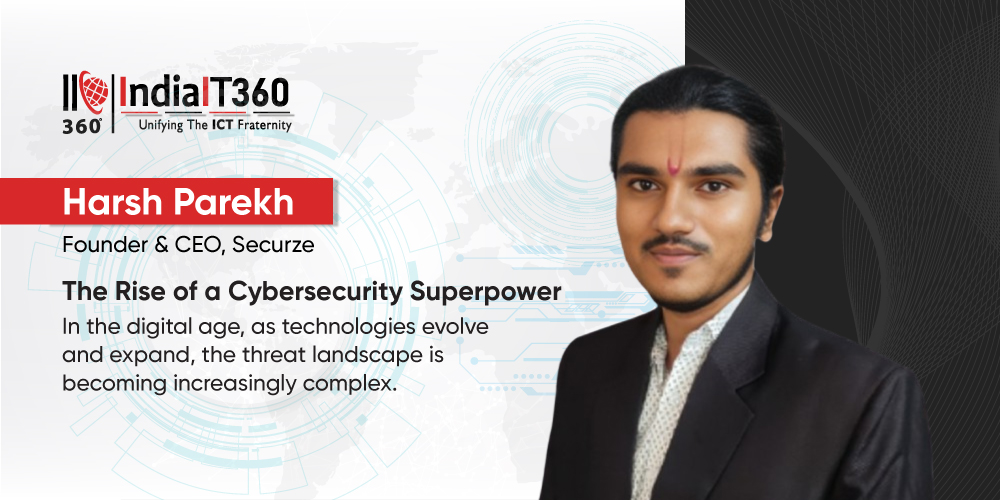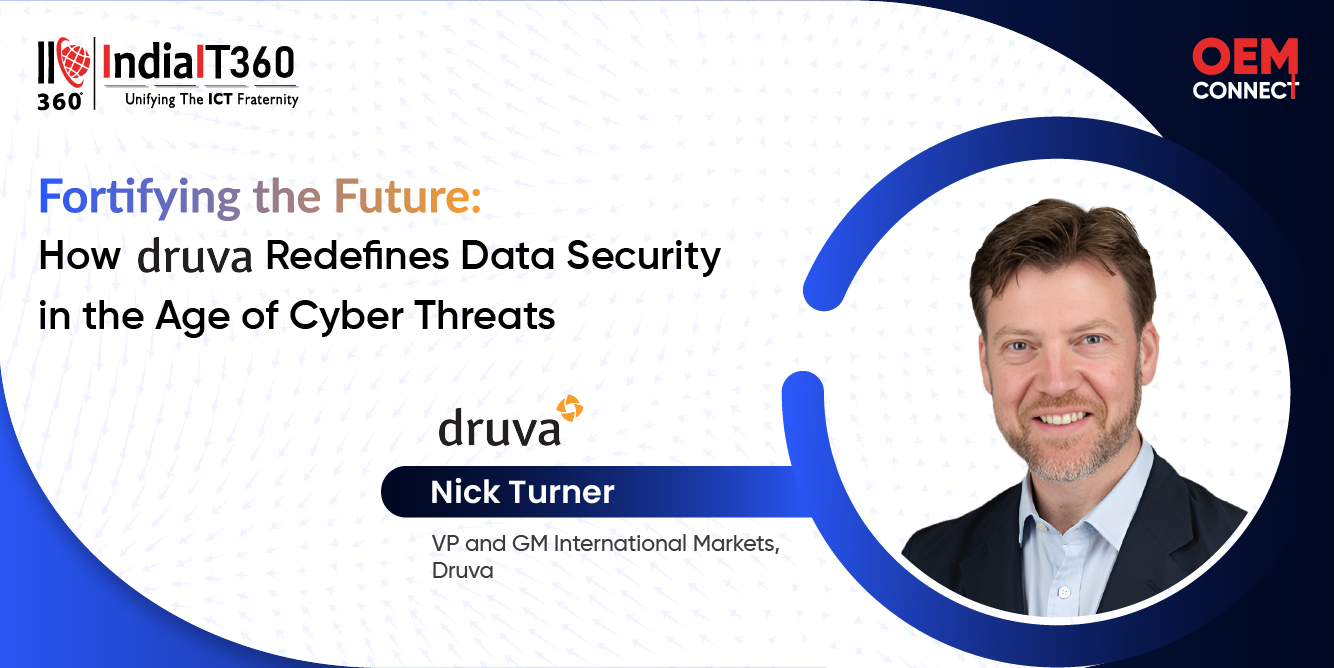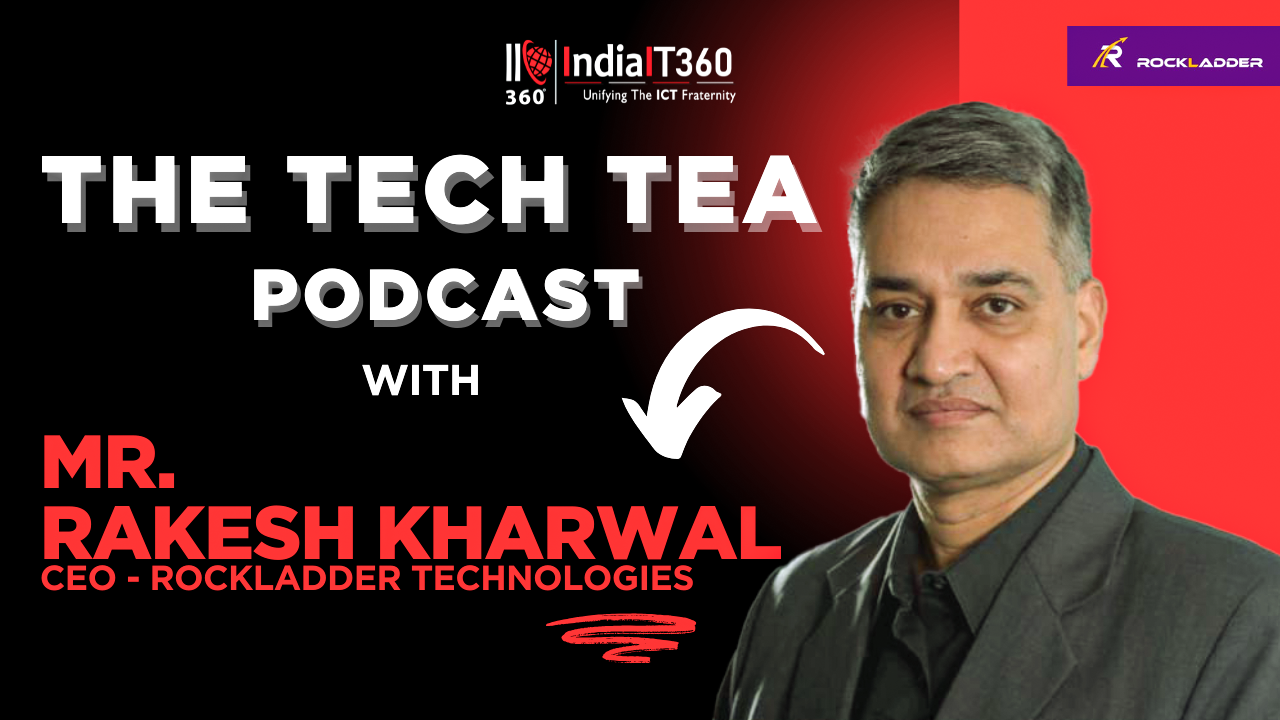India: The Rise of a Cybersecurity Superpower
India: The Rise of a Cybersecurity Superpower
Cybersecurity has swiftly become one of the most pressing areas of focus for governments and nations across the globe. In the digital age, as technologies evolve and expand, the threat landscape is becoming increasingly complex. India, as one of the largest digital economies in the world, has been at the forefront of this transformation. With over 800 million internet users and a rapidly expanding digital infrastructure, India is experiencing an unprecedented digital revolution. However, this rapid technological advancement also brings with it an alarming rise in cyber threats. In fact, according to Check Point Research report, India ranks 5th globally in terms of cyberattacks, with a staggering 500+ million data breaches reported in 2023 alone.
The rise of the Internet of Things (IoT), the shift from wired to wireless technologies, and the growing reliance on cloud computing, AI, and big data are reshaping industries at a breakneck pace. While these advancements are bringing incredible efficiencies and innovations, they also expose critical vulnerabilities that can be exploited by malicious actors. The stakes are high, and the need for strong cybersecurity infrastructure has never been more urgent. As India continues its journey towards becoming a global leader in technology, ensuring the security of its digital infrastructure will be key to safeguarding its citizens, economy, and national security.
Technological Advancements across Industries
The integration of IoT into various sectors has revolutionized industries, enabling smarter, more efficient, and adaptable systems. The healthcare industry, for example, has seen an extraordinary transformation with the rise of IoT-powered devices. Health monitoring systems and remotely operated surgical robots are now helping doctors provide critical care, often from miles away. In the automobile sector, modern cars are equipped with internet connectivity features that keep the vehicle constantly linked to the internet and your phone, enabling real-time tracking, remote locking, and unlocking, as well as data transfer for improved AI-based driving systems and vehicle performance.

Cybersecurity in National Defense
The national military has also embraced these advancements, utilizing secure communication systems that rely on encrypted protocols to ensure that sensitive information remains protected from enemy access. GPS systems help locate enemy forces, while advanced technologies support real-time threat assessments, air and ground defense strategies, and the development of sophisticated weaponry. This interconnectivity enables effective responses in times of crisis, relying heavily on the digital infrastructure.
The Growing Threat of Cyberattacks
While these advancements have brought about unprecedented benefits, they have also created new vulnerabilities. Cyber attackers and hackers have become increasingly skilled in exploiting the weaknesses of interconnected systems. Recent cyberattacks have demonstrated just how vulnerable critical infrastructure has become. For example, hackers have been able to remotely disable medical devices such as pacemakers, take control of power plants, or breach sensitive national security data. The implications of these attacks are dire—ranging from loss of life to destabilization of entire industries. A cyberattack on a power grid, for example, could cause widespread outages, while a data breach of national security secrets could compromise a country’s defense capabilities.
The Value of Personal Data and National Security
The protection of personal data has emerged as a crucial issue, not only for individuals but also for national security. Every citizen's personal information—such as their name, birthdate, Aadhaar number, PAN, passport details, and more—constitutes a digital identity that can be exploited by malicious actors. India ranked 5th globally in 2023 for the number of accounts breached, with high-profile incidents like the COVID-19 data breach and the Aadhaar data leak affecting millions of citizens. When this sensitive data is stolen, it can lead to identity theft, fraud, and serious financial losses. Worse yet, large-scale breaches make it possible for cybercriminals to create fake identities, commit fraud, and even engage in international cybercrimes.
The Growing Need for Cybersecurity Infrastructure
The rise in data breaches and cyberattacks highlights the urgent need for robust cybersecurity infrastructure. Personal data is no longer just a personal concern; it is a national asset. A breach in security can undermine the trust of the public and international partners, damage a country’s financial stability, and tarnish its global reputation. In India, ransomware attacks and data breaches have led to millions of rupees being siphoned off to other countries. This growing threat requires immediate and comprehensive action to safeguard the nation’s digital assets.
The Role of Citizens and Businesses in Cybersecurity
For India to become a cybersecurity superpower, it is vital that citizens and businesses alike understand the importance of securing data. Personal data is not just a set of numbers; it represents an individual’s digital identity. As such, both individuals and organizations must implement strong security measures to protect against data breaches, cyber fraud, and ransomware attacks. Organizations of all sizes—whether small enterprises or large corporations—must prioritize cybersecurity to safeguard the data they manage. Small steps taken now can help prevent larger, more damaging attacks in the future, contributing to the overall cybersecurity strength of the nation.

India’s Future in the Digital World
Looking ahead, India’s future will be shaped by its businesses and technological advancements. These enterprises are not only the engine of economic growth but also pivotal players in global markets. As artificial intelligence, IoT, and interconnected systems continue to evolve, India has the potential to lead in the global digital economy. However, this progress must be underpinned by strong cybersecurity measures to ensure the safety and security of emerging technologies.
Conclusion: A Call for Cybersecurity Vigilance
India stands at a crossroads. The country has the potential to be a global leader in both technology and cybersecurity, but this requires a concerted effort to protect its digital assets. As technology continues to evolve, cybersecurity must remain a top priority across all sectors—from individuals and businesses to government systems. By doing so, India can ensure its place as a digital superpower, safeguarding its citizens, economy, and reputation on the global stage.
Article Written by : Harsh Parekh - Founder & CEO, Securze


































